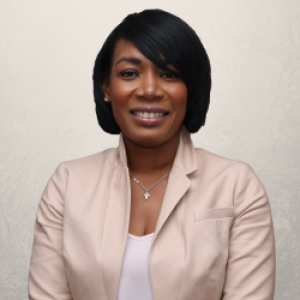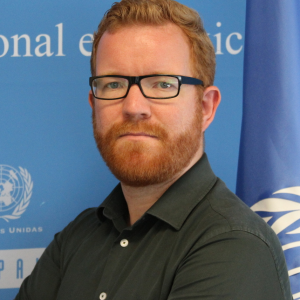Women must have a seat at the table of climate change and disaster preparations
31 March 2022
Today, the Jamaican Economy Panel (JEP) publishes the tenth round of its discussions focusing, this month, on how gender intersects with climate change and disaster preparedness. This discussion is the second of a three-month thematic focus on specific climate change issues
This month's topic also acknowledges the celebration of International Women's Day on 8 March. UN Women celebrated this year with a theme of "Gender equality for a sustainable tomorrow", highlighting the significant contributions by women and girls around the world to the discussions on climate change adaptation, mitigation, and response.
UN Women is also one of the agencies leading the EnGenDER project. EnGenDER is a large-scale project funded by Global Affairs Canada and UK Foreign and Commonwealth Office, supporting climate change, disaster risk reduction and environmental management interventions in nine Caribbean countries.
The panellists were asked about their perceptions of Jamaica's hazards and whether such hazards are exacerbated by climate change. The panellists agreed that Jamaica is most exposed to the hazards of drought, coastal flooding, and extreme heat. They generally see the hydrometeorological risks as most likely exacerbated by climate change.
Dr. Nadine McCloud, Head of the Economics Department at UWI Mona and co-founder of the JEP, comments that "Jamaica has been lucky in recent years with the paths of different hurricanes dodging us. However, given our experience with Gilbert, we should not be complacent about the impact of a direct hit of an extreme natural disaster on the Jamaican economy and people. Climate change increases air's capacity to hold moisture, which increases the risk of excessive rain even outside hurricane conditions. This pattern is an existential threat to many farmers and Jamaican communities living close to water, as shown in last month's JEP Discussion".
The great majority of respondents agreed that, in the face of many disasters, the risks faced by women and girls are different from those faced by men and boys. Some of the key ingredients to the increased risk level include that women often have lower incomes than men and are more likely to be single parents. In addition to the economic vulnerability of women and girls, they are also seen as being more present in households, thus having to cope with challenges such as interrupted sanitation and water supplies. Finally, there is a real threat of gender-based violence, especially in acute disaster situations that warrant evacuation or shelter movements.
Tonni-Ann Brodber, Representative of the UN Women Multi-country Office for the Caribbean, comments that “in addition to the economic vulnerabilities of women, their care responsibilities for children and the elderly act as an additional responsibiliy. If a disaster causes school closures, societal expectations often demand that women stay home to provide care duties. Additionally, women and girls are often at greater risk of the threat of sexual abuse and exploitation in the aftermath of a disaster. The increased risks are not unique to women and girls, other groups including people living with disabilities, the elderly, and members of the LGBTQ+ community also face increased risk as a result of intersecting vulnerabilities.”
The critical tool in addressing the vulnerabilities of women and girls in hazardous situations is including women in discussions on disaster preparedness and climate change. The participation of civil society organizations that represent women is often forgotten, and women's political representation in Jamaica continues to lag. In Jamaica, one somewhat bright light is the relatively favourable position of girls when it comes to Science, Technology, Engineering and Mathematics (STEM), compared to the abysmal situation they find themselves in other countries. After all, when women and girls pursue STEM careers, they will necessarily be engaged in the technical discussions to prepare for disasters and oncoming climate change.
Responding to the survey results, Dr. Garry Conille, United Nations Resident Coordinator, shared that
“Gender equality is a core value of the United Nations and a person’s gender should not be a risk factor in emergency situations. Despite progress we still have much to do, as a collective, to ensure the safety of women and girls during and after crisis events. One of the key strategies to achieve this goal is to ensure that women and girls are included and that their voices are heard long before disaster hits."
The Jamaican Economy Panel is a partnership between the United Nations in Jamaica and the Department of Economics at The University of the West Indies (UWI) Mona. The JEP brings together a select group of economic and public sector experts to address monthly socio-economic questions. These questions help to highlight relevant economic issues and the collective expertise of the panellists.
The full results of this month's discussion are available here.

Dr. Nadine McCloud







